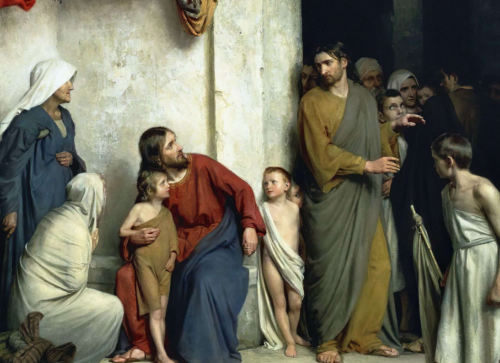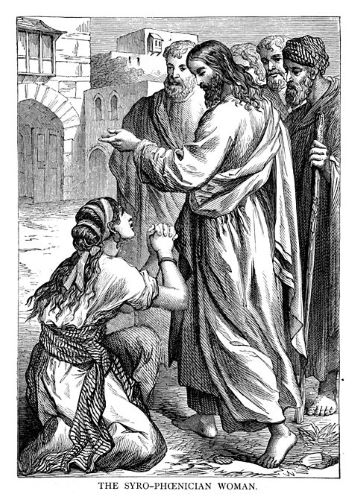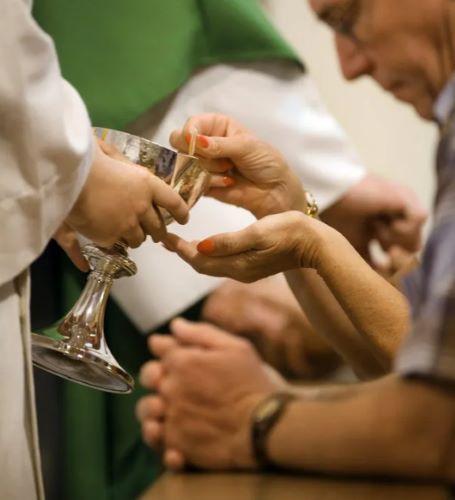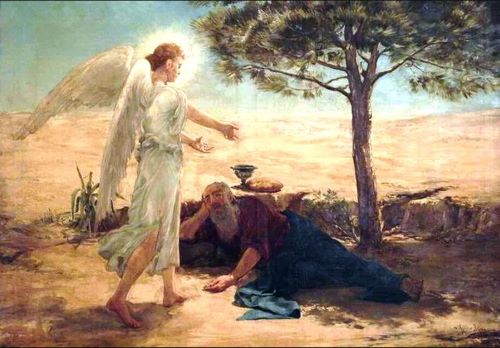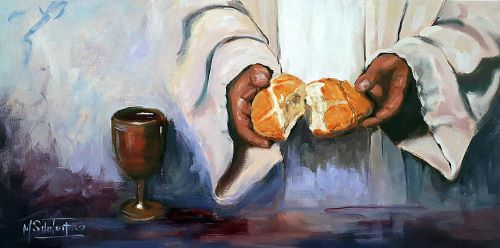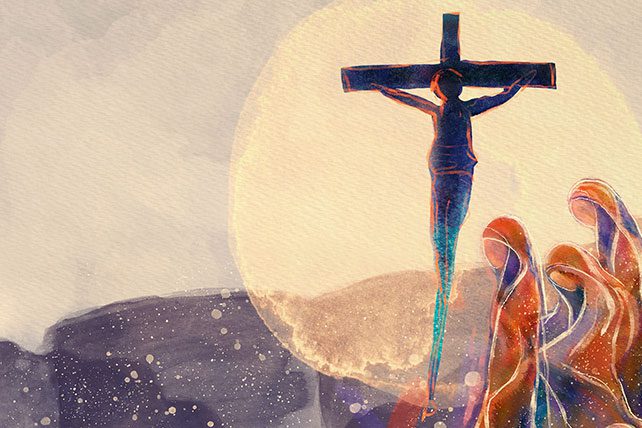
Good Friday
Year A
Isaiah 52:13-53:12
Psalm 22
Hebrews 10:16-25
John 18:1-19:42
May the words of my mouth O God… speak your truth…
Year after year… during Holy Week… we read the Passion Narratives about Jesus’ betrayal and last day… in some small way… we may identify with his suffering… because we have all suffered… ] in some small way… we may consider how like Peter… we have denied Christ… and in some significant ways… we may resist relying fully on God… so that if God doesn’t give us what we want… we can just get it for ourselves thank you…
In our Passion reading… we wrestle with an avalanche of anti-Jewish sentiment that has been building for almost two thousand years… and which has found mis-guided expression over the last few years… in attacks on Jews… and in synagogue shootings… an avalanche of blame which holds Jews responsible for Jesus’ death… and which has fueled more horrific violence than our knowing hearts could bear… why… in third grade… one of my classmates pointed his finger at me and said… YOU KILLED JESUS… one wonders what he heard in church or at home… but buried deep in that blame… there’s an unwillingness to be vulnerable…
In one of her TED talks on vulnerability… Brené Brown said that religion has moved from faith and mystery… to certainty… all so we can avoid vulnerability… because the more afraid we are… the more vulnerable we become… and when we’re really afraid… that’s when fear can turn into blame…
Brown explains that blame is a way for us to release pain and discomfort… so if I can blame you for something… like killing Jesus… I can feel superior… more confident about myself and my opinions… and in addition to the false notion that it was Judaism as a whole which crucified Jesus… or as my classmate claimed… that I did… there’s the historic understanding that Jesus died for our sins… to pay a debt to the Father… an idea developed by St. Anselm of Canterbury… and this understanding is connected to the notion of original sin… ] but the concept of original sin… which was developed in the 4th century… didn’t become official church doctrine until it was adopted by the Council of Trent in the 16th century… and it’s to be found nowhere in the Bible… let’s remember that in Genesis 1:31… God saw all that God had made… and it was very good… yet some of the hymns we sing… and the words we speak… perpetuate these notions…
But there’s another widely-supported perspective which warrants some consideration… the Franciscan philosopher and theologian John Duns Scotus… disagreed with the understandings of original sin… and substitutionary atonement theology… Scotus wasn’t formed by the Jerusalem Temple’s language of debt… or blood sacrifice… instead… he was inspired by the high-level cosmic hymns in the first chapters of Colossians and Ephesians… and those in the first chapter of John’s Gospel…
Ironically… since Anselm… many Christians have embraced the idea that before God could love us… God needed Jesus to be a blood sacrifice to atone for our broken humanity… and with that view… salvation depends on a problem… instead of on a prior proclamation about the basic nature of reality… as if a God who created everything… could need a payment… no less a violent one… before being able to love and accept God’s own children…
For Scotus… God’s incarnation and the world’s redemption could only be… the proactive work of God from the very beginning… the hymn in Ephesians 1:4-5 sings that… God chose us in Christ before the foundation of the world… to be holy and blameless before him in love… and he destined us for adoption as his children through Jesus Christ… according to the good pleasure of his will… ] and consistent with this… only God’s perfect love and desire to reveal God’s self to us… could have motivated the incarnation… and not the need to forgive our sins…
And so… Scotus believed… Jesus didn’t come to change God’s mind about us… but to change our minds about God… and to help us do that… Jesus moved people beyond the counting and weighing models that our egos prefer…] Jesus undid once and for all… the notions of human and animal sacrifice… and replaced them with a new economy of grace… a new economy of unity… which is at the very heart of the Gospel’s revolution…
Chaplain David Keck wrote that the Gospel text is full of people who are certain of themselves… or who put on a show of being certain… and that Jesus was meant to be a game changer for the human psyche… and for religion itself… ] they were certain that entering the Roman headquarters would defile a devout Jew… yet handing the Word of God over to death did not…
Because when we remain focused on sin… we fail to see that Jesus was pointing us toward God’s solidarity with all of creation’s vulnerability and suffering… and this really changes everything… because it challenges the notions of power and certainty in which we are drowning… all we have to do is look at the mass shootings which plague our country… shootings which are the leading cause of death among America’s children… and our corporate failure to do enough to stop them…
And this can open us up to a new starting point… because if we change the starting point… we can change the trajectory… if we understand that Jesus died to show us what love in action looks like… then all we need to know is that God does not love us because we are good… God loves us because God is good… and there’s nothing we can do in God’s eternal eagerness to love us… that could make God love us more… and there’s nothing we could do to make God love us less… Fr. Richard Rohr believes that the crosses we bear… are the burdens of our own experiences… so as we begin to move out of Lent… as we move beyond blame and certainty… as we embrace God’s Mystery and love… let’s be increasingly responsible for removing the logs in our own eyes… and healing our own various wounds… and considering our own Passions… which have already been redeemed by God’s love…

